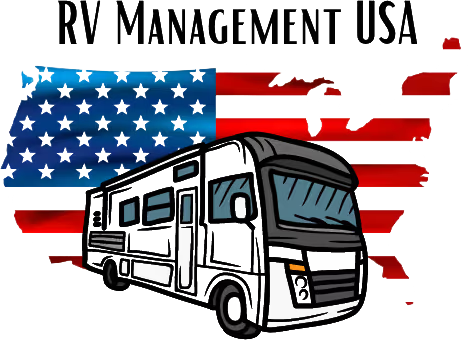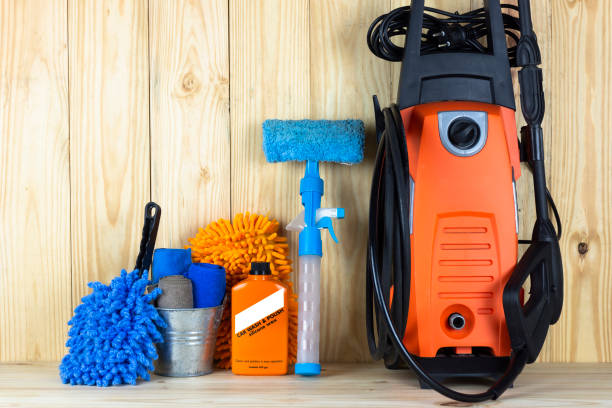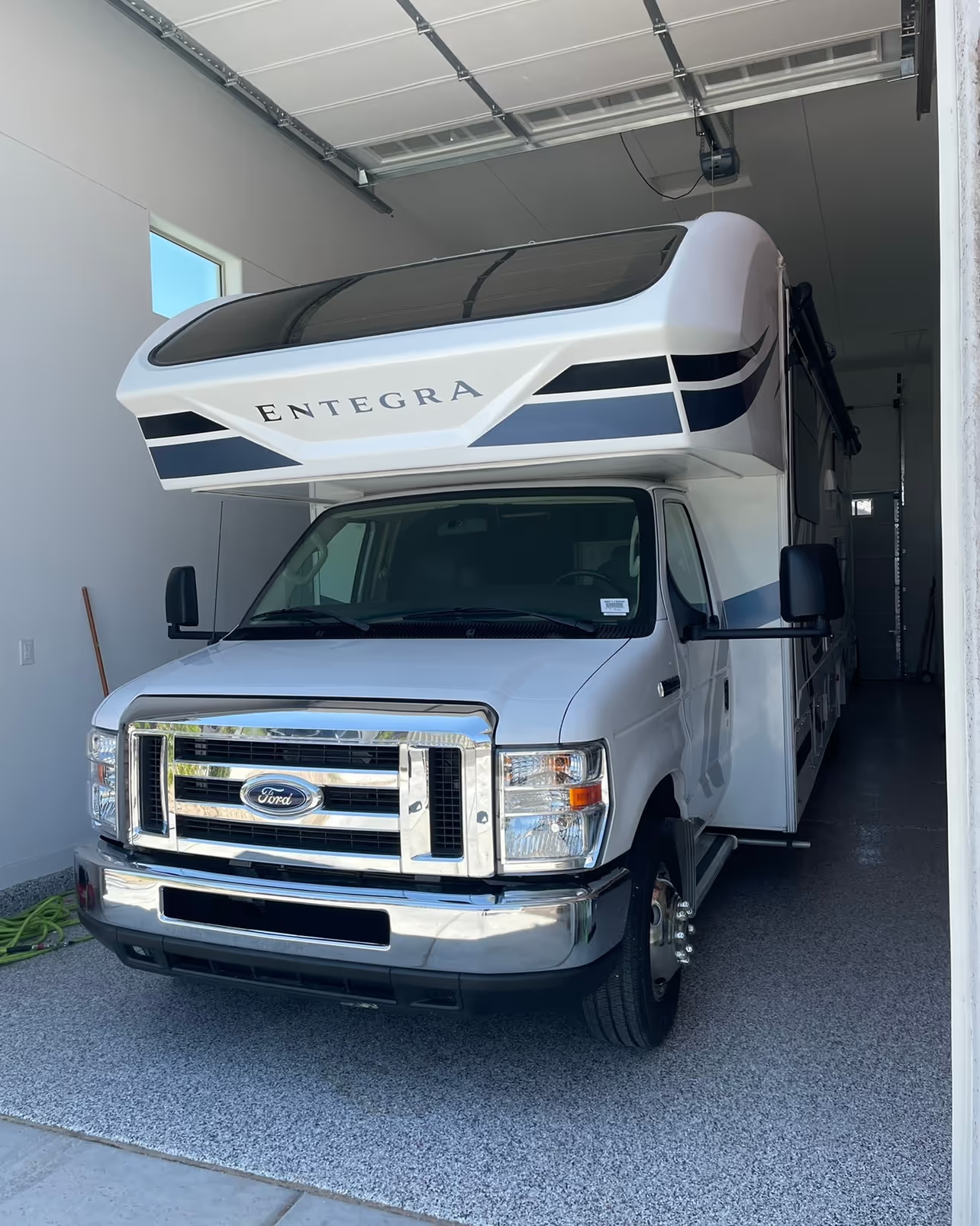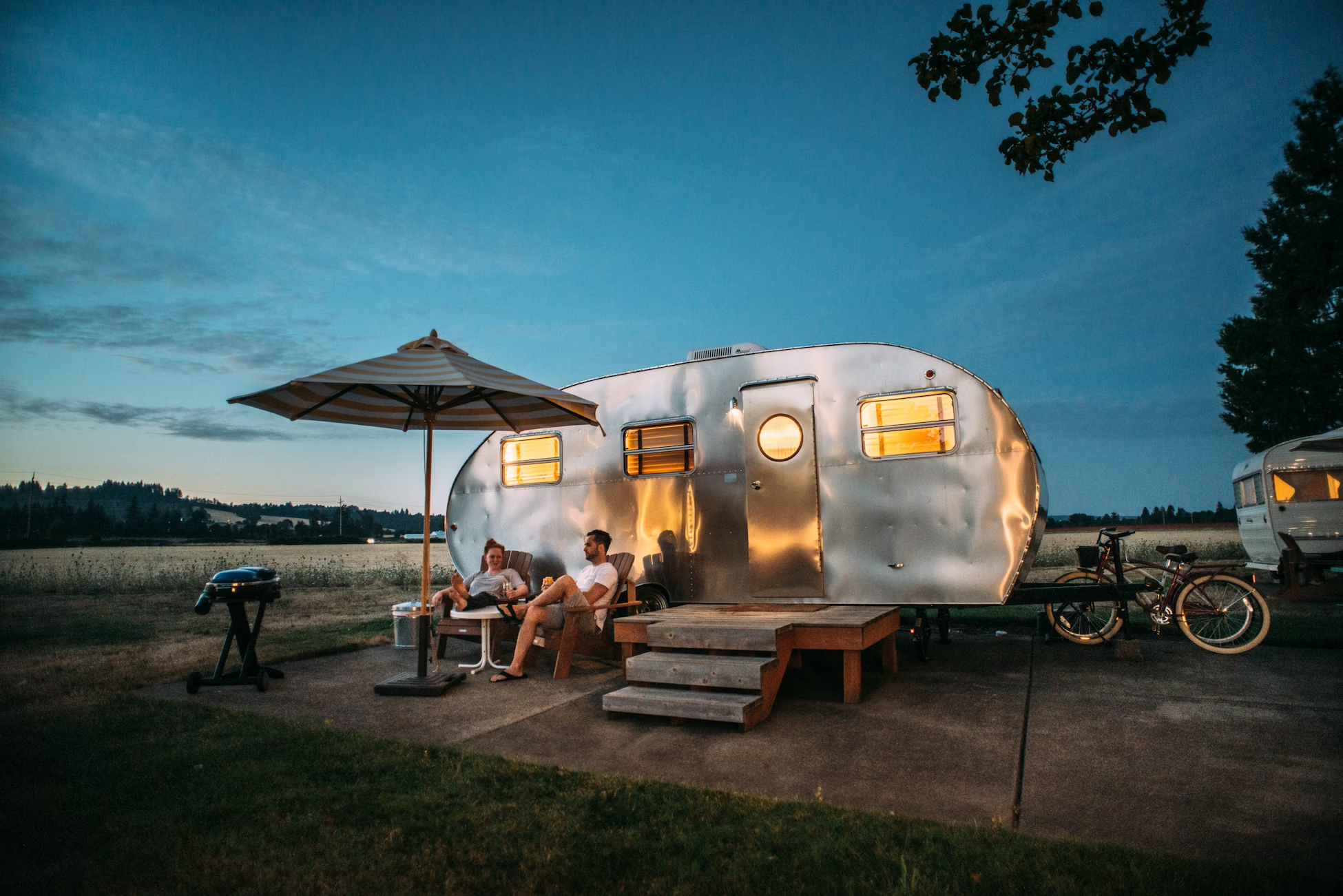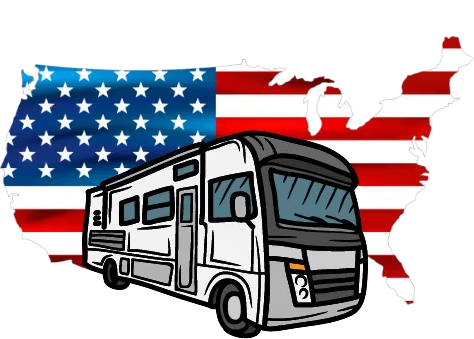Buying your first RV is exciting—it’s part dream, part adventure, and let’s be honest… part panic. There’s a lot to consider, and it’s easy to make snap decisions when you’re standing in front of that shiny Class C with the perfect layout.
We get it. You’re not just buying a vehicle. You’re buying into a lifestyle. But that makes it even more important to pause, ask the right questions, and learn from the mistakes others have already made.
In this post, we’re going to walk through the most common traps new RV buyers fall into—from budgeting blind spots to picking the wrong floorplan—and how to avoid them so you can buy with confidence.
Let’s get into it.
Table of Contents
- Falling in Love Too Fast: Choosing with Emotion, Not Logic
- Ignoring the Total Cost of Ownership
- Picking the Wrong Type of RV for Your Goals
- Skipping the Inspection (And Paying for It Later)
- Not Thinking Like a Renter (If You Plan to Rent It Out)
- Overlooking Tow or Weight Capacity
- Buying Without Ever Trying One First
- Underestimating the Learning Curve
- Forgetting About Storage, Insurance, & Maintenance
- Final Thoughts: Slow Down, Ask Questions, and Buy Smarter
1. Falling in Love Too Fast: Choosing with Emotion, Not Logic

It happens all the time.
You walk into an RV, the sunlight hits the dinette just right, and suddenly you’re picturing the kids playing cards while you sip coffee at sunrise.
That’s great… but is this rig actually right for you?
Take emotion out of the equation long enough to ask:
- Is the layout functional for how we really travel?
- Does this size work for where we plan to go (national parks, boondocking, campgrounds)?
- Is this too much RV for our first go-around?
Excitement is good. Just don’t let it override practical thinking.
2. Ignoring the Total Cost of Ownership
If the sticker says $78,000, that’s not the full cost.
Too many first-time buyers focus only on the purchase price—and forget about:
- Insurance premiums
- Storage fees
- Routine maintenance (oil changes, roof reseals, etc.)
- Repairs (which always come at the worst time)
- Accessories (hoses, chocks, power adapters, and the list goes on)
- Potential downtime if you're renting it out
Know the full picture before you commit. Owning an RV can be an amazing experience—but budgeting correctly from the start makes it far more enjoyable.
3. Picking the Wrong Type of RV for Your Goals

Not all RVs are created equal—and the best choice depends on what you need.
We’ve seen new buyers purchase:
- A fifth wheel without owning a truck
- A camper van with no bathroom, then regret it on day two
- A 35’ Class A when they really wanted to explore tight mountain roads
Ask yourself:
- Will I be using this for family trips, solo travel, or rental income?
- Where do I want to go—and can this RV get me there?
- Will I be staying in campgrounds, boondocking, or both?
The right rig is the one that supports your real lifestyle—not your fantasy version of it.
4. Skipping the Inspection (And Paying for It Later)
We can’t say this enough: Always inspect the RV before you buy.
Even new units can have issues—leaks, electrical quirks, or shoddy assembly.
And if you're buying used? A full inspection is non-negotiable. Water damage, delamination, or worn-out systems can easily hide behind fresh caulk and a good cleaning.
A few hundred dollars spent now can save you thousands later.
5. Not Thinking Like a Renter (If You Plan to Rent It Out)
If you’re buying the RV with rental income in mind, you have to think like a guest.
Ask yourself:
- Is the layout easy to use for first-timers?
- Can people sleep comfortably and safely?
- Does it feel intuitive and renter-proof?
We’ve seen investors buy luxury Class A’s thinking high price = high profit, only to find out families prefer bunkhouses and simplicity.
Buying with your future renter in mind helps avoid long-term headaches and boosts your ROI from day one.
6. Overlooking Tow or Weight Capacity
This one’s simple—but we see it constantly.
If you're buying a travel trailer or fifth wheel, know what your vehicle can tow safely. And if you’re buying a motorhome, know its cargo and towing limits too.
Too much weight = safety risk, insurance liability, and fried transmissions.
7. Buying Without Ever Trying One First
It sounds obvious, but many buyers skip this.
Before you buy, rent the type of RV you’re considering—even if it’s just for a weekend. You’ll learn what works for you, what doesn’t, and what little things drive you crazy.
We've worked with dozens of buyers who changed their mind after one weekend rental. That rental saved them thousands and steered them toward a better fit.
8. Underestimating the Learning Curve
Owning an RV comes with a learning curve—driving it, dumping tanks, connecting power, troubleshooting things that rattle, hum, or just stop working.
The mistake? Thinking it’ll be just like driving a big SUV.
Give yourself time to learn. Watch walkthrough videos. Book a session with a mobile RV tech. Don’t expect to feel like a pro on day one.
9. Forgetting About Storage, Insurance, & Maintenance

Your RV needs a home when it’s not on the road.
Too many buyers forget to factor in:
- Where will I store this safely?
- What will it cost to insure?
- How often will it need maintenance—and who will do it?
A smart plan for the "off-season" is part of being a smart RV owner.
10. Final Thoughts: Slow Down, Ask Questions, and Buy Smarter
Buying your first RV should be exciting—not overwhelming.
Take your time. Ask the uncomfortable questions. Don’t be afraid to walk away from a “deal” that feels too rushed or too good to be true.
And above all? Learn from others who’ve been there before. It can save you money, time, and regret.
If you’re unsure what to buy—or want help picking an RV that’s great for both travel and rental income—we’re here to help.
Because when you buy smart, everything else gets easier.
— The RVM Team
